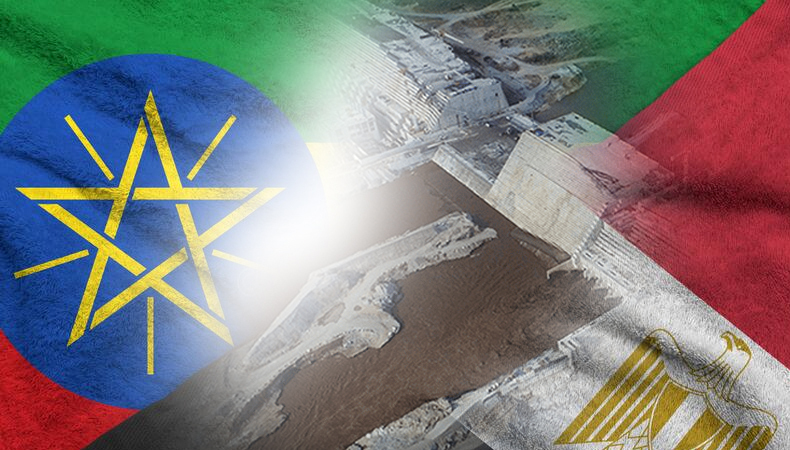Ethiopia accuses Cairo of politicizing Nile water issues, and Egypt denounces them

Egypt has criticized Ethiopia for its claim that Cairo is politicizing the dispute over the Nile’s waters, claiming that this is an effort to avoid taking legal responsibility for the Grand Ethiopian Renaissance Dam’s effects.
Ethiopia started gradually filling the dam in 2020 after it had been under construction since 2011, which raised concerns with Egypt and Sudan, who are downstream and worry that it may diminish their share of the Nile’s water. They urge that Ethiopia enter into a definitive agreement for its operation and filling.
Egypt’s deputy foreign minister for African Affairs, Hamdi Loza, stated on Wednesday that Cairo’s worries regarding the project’s effects on Egypt’s water security are valid and supported by concrete scientific research.
He criticized Ethiopia’s ongoing accusations that Egypt is politicking the situation, which were most recently echoed by the country’s state minister for foreign affairs, as an effort to avoid accountability and disdain for the norms of international law and good neighborliness.
Loza stated: “It is unfortunate that Ethiopian authorities continue to indicate their willingness and desire to begin negotiations under the auspices of the African Union, in a new attempt to buy time and continue filling the dam without an agreement.Ethiopia’s intransigence is demonstrated by the negotiations going on for another 10 years without any progress.”
Read | Non-Muslims banned from Al-Aqsa Mosque for the rest of Ramadan
According to Loza, recent statements by Ethiopian authorities regarding their unlimited freedom to keep filling the dam regardless of the rights of countries downstream are additional proof that their approach to the problem is unilateral and beyond the purview of dialogue.
According to Meles Alem, a spokesman for the Ethiopian Foreign Ministry, the dam’s construction and operation won’t hurt Sudan or Egypt, and Ethiopia is still trying to find an African solution to the project’s critics.
According to Ethiopian media sources, Misganu Arga, the minister of state for foreign affairs of Ethiopia, Addis Ababa’s position is compatible with the necessity of continuing trilateral negotiations under the direction of the African Union.
Egypt depends on the Nile for more than 90% of its fresh water needs, thus any reduction brought on by the dam would be catastrophic for the country’s economy. Sudan is anxious about the dam’s security and how it will affect the water flowing through its own dams and power plants. According to Ethiopia, the project is essential for both power generation and economic growth. As a result, the long-running, contentious disagreement regarding the building, filling, and operation of the dam is still open.




